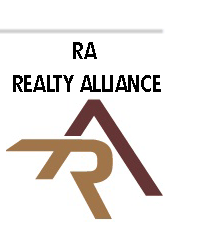|
Property Inspection Media coverage of 'leaky condos' has created uncertainty in the minds of home buyers. A common concern is... "Is the house or condo I want to buy going to surprise me with unexpected repairs?" A house inspection addresses this concern. Why an inspection? Identify potentially costly repairs in advance. A qualified inspector can give you an expert opinion on the soundness of your home and the systems in it … before you commit to the final purchase. An inspection is an investment that pays huge dividends in peace of mind. A property inspector is generally hired during the home buying process. The inspector's job is to provide information about the building being purchased. This information helps the buyer decide if the home or building is worth purchasing or if there are major defects that could effect the purchase decision negatively. Often home buyers hire an inspector when they have inserted a "subject to inspection" clause in the Contract of Purchase and Sale. What will they look at? When a property inspector looks over a property, he checks everything that is visible. They are generally not held responsible for any internal issues like faulty wiring or plumbing hidden by walls, called "material latent defects". Each property inspector will have a disclosure listing their responsibilities and what errors or omissions they can or can not be held accountable for at a later date. The general list of items that a property inspector will check include: heating, plumbing, foundation, roof, electric, appliances, air conditioning, doors, windows, decks and patios. Some will also check any outdoor structures and swimming pools, but not all will. For strata properties, make sure the inspector is willing check the common areas, such as parking garages, elevators, etc. Inspections of condominiums and townhouses do not include the exterior as the walls and roof of the buildings remain the property of the condo or townhouse strata corporation. For single family dwellings and buildings, an inspection may include a building envelope inspection at additional cost. It is key to know of past damage in the building and if the condition that caused the damage can happen again. A property inspector will look for past water leaks, fire damage and evidence of rodents and termites and determine if the conditions are active or dead. For example, a home may have had termites at one point in history, evident by small holes usually in the basement structures. The inspector will advise if it is an active infestation or one that is long gone based on the age of the holes. What information will I receive? The property inspector will prepare a written report at the conclusion of the inspection. This report will contain the information they pointed out to the accompanying home buyer during the inspection itself. This report will give a list of repairs needed and code violations as well as cost estimates for repairs. British Columbia requires home inspectors to be licensed Home inspectors are now required to be licensed under the Business Practices and Consumer Protection Authority (BPCPA). An estimated 300 to 400 home inspectors currently operate in the province, and most are members of at least one professional association. Effective March 31, 2009 the BPCPA will help protect the buyer’s interests, by:
|
Stan Shawn REALTOR® For Vancouver |


